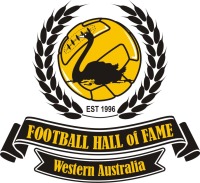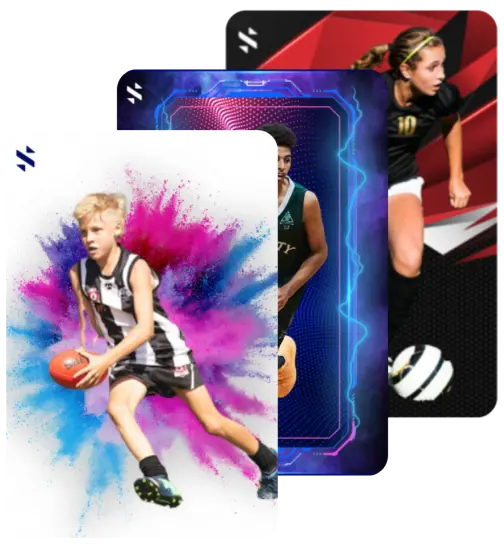WA's great Asian adventure (Part One)
IN OUR celebration of 60 years of professional football in Western Australia, it's time to turn the focus on the ground-breaking Perth Kangaroos. Here's Part One of the bold adventure that was costly for some but ultimately changed the face of the game in the West...
THE month of July, 1993, was abuzz with speculation that WA football - frustrated for so long in attempting to gain entry into the Australian National Soccer League - was about to head in a vastly different direction, which culminated in an Asian adventure.
Frank Schaper, the president of the Professional Soccer Federation, hinted on July 23 that, after several weeks of negotiation, Western Australia was on the verge of signing a deal to clinch a spot in the newly-formed Singapore National League.
A week later, the WA Government's Minister for Sport, Doug Shave, announced that a Perth team would take part in what was a world-first international league in Singapore starting in late March, 1994. A team from Darwin would also be involved, along with eight teams from Singapore (teams from Indonesia and Malaysia declined invites).
Shave said that, although the venture would not be financially-backed by the State Government, it would still be of immense value to WA in a business and commercial sense.
"With a population of 400 million, South-East Asia is economically the fastest-growing area in the world," he said. "We believe it is essential that WA be involved in that area and soccer has helped us take the first steps in that direction."
Tom Mackay, president of ruling body the Soccer Administration of WA, said a consortium would be invited to take over the licence of Perth's Singapore League team - and possibly also that of the team which was hopefully poised to gain entry to the NSL in 1996.
He said it would require a budget of $750,000 a year to run the Singapore League team. "We anticipate picking up $500,000 in gate receipts and sponsorship, and a further $250,000 from the consortium to cover the cost," added Mackay.
He said that it was anticipated players would be drawn from local WA State League clubs. "When their commitment with the Asian league is over they would be free to return to their local club," he explained.
A month later the search was stepped up for a suitable venue to host the home games of the home-and-away season - and the unusual concept of playing on artificial grass at the Burswood Superdome (at that stage the home of the Hopman Cup tennis tournament but long since demolished) was mooted. But it was just as quickly dismissed as too expensive.
On October 26 it was announced that a new company, Global Football Australia, had been granted a three-year licence to run the Perth team in the Singapore League.
The company's six directors included Tom Mackay, Frank Schaper, businessman David Schrandt (who later withdrew), solicitor Joe Claudio, marketing executive Jim Davies and finance and management consultant Trevor Crewe. Claudio was chosen as chairman of the group, and GFA said that it would likely use the WACA Ground or one of better club venues in the metro area as its home base.
In December of 1993, it was confirmed that former Australian captain Gary Marocchi, who had been coaching Perth Italia, would be the coach of the new Perth-based side. Former Manchester City player Mickey Brennan was named as his assistant.
Marocchi drew up an initial list of 29 players who would be approached to see if they were interested in joining the history-making venture.
His list was: Tommy Maras, Vince Matassa, Steven Wiley, Gareth Naven, Craig Naven, Marc Wingell, Dale Wingell, Scott Miller, Frank Bate, Paul Strudwick (all of Perth Italia); Jason Petkovic, Alex Cummings (Spearwood Dalmatinac); Andy Hinchcliff, Ray Marinovic, Vladimir Beretovac, Raymond Kastropil (North Perth Croatia); Andy Wright, Wayne Thrope, Paul McVittie, Ian Cornthwaite (Stirling Macedonia); Brian Sweeney, Sean Lynch, Taki Nicolaidis, Slobodan "Bobby" Despotovski (Floreat Athena); Steve Bourne, Paul Waddingham, Dean Wallace (Rockingham City); Gary Lees (Kingsway Olympic); Jimmy Provan (Fremantle Benfica).
Not all got the nod from their local clubs (many being still under contract) to take up the invite - many weeks of wrangling between players, clubs and the GFA syndicate would ensue before Marocchi could settle on a squad - but the ASIAN ADVENTURE was gaining considerable momentum.
The next step was to announce a name, which would be revealed only a few weeks before the start of the league. It was a hop, step and kangaroo leap away.
Although the squad was still to be finalised, Craig Naven was named as the inaugural captain (he relinquished it later in the season to his twin brother Gareth) and he gamely posed for a pic at Perth Zoo with a kangaroo when the club name was unveiled...the IFC (International Football Club) Perth Kangaroos.
***TO BE CONTINUED...
FOOTNOTE: The formation of Perth Kangaroos wasn't WA's first venture into Asia, although the first to take part in a league system. The WA State team made its Asian breakthrough in 1967 (taking part in the Merdeka Cup in Malaysia) and in 1975 and 1976 won back-to-back Marah Halim Cups in Indonesia.
PICTURED: Craig Naven at Perth Zoo; Kangaroos board Trevor Crewe, Jim Davies, WA Premier Richard Court, Joe Claudio, Frank Schaper, Tom Mackay; Gary Marocchi; Mickey Brennan.














Comments
Comment Guidelines: The SportsTG Network is made up of players, families and passionate sports followers like you who have a strong opinion about sport. That's great - we want you to have your say and share your thoughts with the world. However, we have a few rules that you must follow to keep it fun for all. Please don't be rude, abusive, swear or vilify others. Apart from some pretty serious sport sanctions, we also can ban you and report you if things get out of hand. So play fair and have fun, and thanks for your contribution.